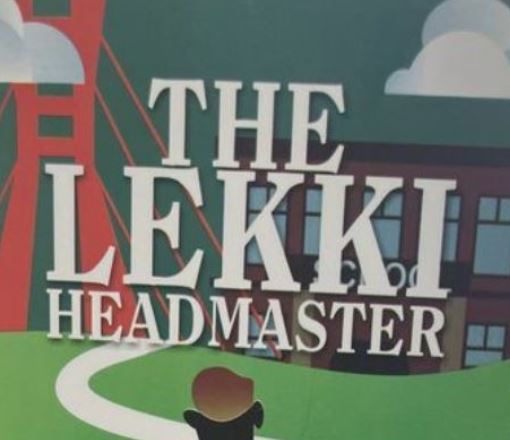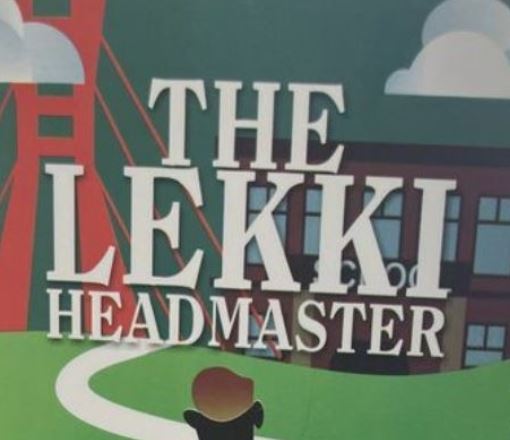Welcome to chapter 3 of the new 2025 JAMB story book, Lekki Headmaster By Kabir Alabi Garba. The PDF file is no available for free and you can read it online or download the novel for offline use.
Note that this book is free and it is highly recommended and compulsory for all 2025 JAMB candidates. It is advisable to read and get acquainted with this book and every student must answer questions from it.
If you are to read the chapter one of this book, read them here:
The good news is that you do not have to worry. We have done all the works for you by providing with the book according to their chapters. We have also summarized the book in chapters, prepared the UTME possible questions and answers, including other things like settings of the book, protagonist, antagonist, characters and roles, etc.
Things to Note Down as you Read this Book
- Get a pen and book and write down the names of the characters in this novels.
- For better understanding, calm your nerves and read it as if you’re reading a regular story. Your brain functions better when you offload it of every pressure or anxiety.
- Ensure to write the themes in this chapter.
- Note down the protagonist and the antagonist in the novel.
- Summarize the chapter in your own understanding.
Lekki Headmaster Chapter Three By Kabir Alabi Garba
AFTER Bepo had finally made up his mind to relocate to the UK, he decides to pay attention to tales emanating from foreign lands- especially Canada, _United Kingdom and the United States of America, In terms e remuneration, he always knew that payment there could be hourly, daily, weekly on monthly; unlike Nigeria where one-time salaries were a feature of white collar jobs He liked the idea of hourly remuneration: it would make job schedules flexible, offering the employee an opportunity to change the job as often as he could. On the part of the employer, he would be able to closely monitor the worker. It neutralised the Yoruba proverb that says oga ta, oga o ta, owo alaaru a pe: that is whether an employer records gain or not, the employee will yet take home his full pay. The pragmatic wage system, he thought, must be one of the ideals contributing to continued growth of the developed world.
A friend of his who lived in the USA told him one could earn between $150 and $250 per day, depending on the nature of the job and the location. He learnt that one could work up to four days a week. If that happened, Bepo and many others who dreamt about Japa could earn up to $2,400 a month. They would quickly multiply that by about the prevailing N1,600 rate, and arrive at what became a comparatively big sum of money. What such people often forget, however, was the fact that they would live and spend in dollars in the US or pounds in the UK paying rents, taxes, maintenance and others —in the hard currencies they earned. Yet, they felt whatever remained, if sent back home, still translated to good sums, which many Nigerians could not afford to save.
Also, Bepo gathered, there were people who earned far more than $150 or even $250 daily. This suggests there would be more to remit home or exchange to naira later. He was told that cab drivers earned better than people who worked in stores or toilets. He found instructive the story of a Nigerian who switched from driving to maintenance. The guy knew a bit of carpentry and was eventually invited for a maintenance job in the US. He earned $500 daily. Bepo marveled at the thought of converting the sum to naira. That meant earning up to N800,000 daily!
His survey further revealed that skilled work was among the best options for anyone in any of the countries of choice. What could be more inspiring than receiving, say, $100 per head, if you were a barber? As a result, those who understood the trends often advised intending immigrants to learn a skill before leaving Nigeria. Bepo also had learnt painting during his last break.
The relocation bug had caught on in the country in the past few years Nurses, doctors and other health workers, said to be enviably remunerated, had been migrating at an alarming rate. Even the government conceded that up to 1,000 of the country’s 3,000 doctors were migrating annually. Besides these, other people were laving from all walks of life. Many graduates were fleeing, especially under the pretense of pursuing Master degree. e ine chittee diction via largely aleced students to travel with their spouses and children made such people became desperate. Guys sold all they could to pay for accommodation, fees and sundry requirements. These included houses, land, cars, as well as office and home furniture.
There were, indeed, cases of some who sold what did not belong to them, so that they could rightly be called the criminals they were. Some took loans from various sources and fled before full repayment. Others paid back later from the countries they secretly relocated to. Yet, there were some that never even bothered to look back. Classical rogues!
Bepo could attest to some of these crooked practices from his experience at Stardom. There was the celebrated case of Mr. Nku, who took a N2 million loan from the school’s cooperative and, two days after, disappeared into the Japa wind. Also, one of the school’s drivers, who attempted to steal the bus in his custody, confessed to the police: he wanted to sell it and use the proceeds to send his son to college abroad.
Bepo credited Sola, another young Nigerian in the diaspora, for giving him a fresh perspective on life in the UK. About six months earlier, Sola was the Home Economics teacher at Stardom. She was on a ‘sick leave when she and her husband landed in the UK. She had called Bepo, a day after they arrived in London, and confided in him. They were a little close. Bepo had help /1 her when she faced sacking for setting up a creche in the vicinity of Stardom Schools. He led the investigation.
Knowing how effective she was in class, and the fact that she had just had her first child, he convinced the management that the creche was merely casual. Sola only faced a three-month working suspension without pay. However, monitoring by the school, while she served the punishment, revealed that she continued to work committedly. Eventually, all her entitlements were paid.
“Your kind of relocation is the most convenient, sir,” she reassured Bepo during one of their phone conversations. “Since your wife is here already, working as a nurse, you will have little or no stress settling down. I do not know her cadre or where she works, but nurses and other health workers are generally well paid in the UK. Else, you will not be burdened with having to work to pay your wife’s school fees, as many spouses do here. In many cases, the husbands work while the wives go to school. As for me, I am working while my husband is pursuing his Master’s. He also works for some hours, anyway. You will work but not under much pressure. That is, hoping Madam cooperate with you. Another thing that makes your coming easier is that you
are not borrowing your way through. Or are you?”
Bepo replied in the negative, revealing he had actually found a teaching job in the UK.
“That is what I’m saying,” Sola added. “My husband and I sold everything, and we still had to borrow about N4 million. But I don’t have any regret. We have just been about six months here in the UK, and I have changed jobs more than three times.
The one 1 just got is more promising; it will fetch me up to £200 daily. And, lest I forget, you won’t have any challenge concerning what to do in the next two years – unlike spouses that are here for schooling. Finding the opportunity for continued stay is not a child’s play. We all are just trying out our luck.”
Sola said because she and her husband could not afford up to £1,500 or £1,000
monthly rent in London, they had to stay in Manchester where they rented a non-furnished two-bedroom apartment for £650 monthly. According to her, the space was not quite comfortable, but it solved their immediate needs.
“Happily, here is not like Nigeria where a landlord will insist you pay for a year or more in advance. We pay as we live. Gradually, we have also been equipping our home, beginning with a mattress and a small TV. The bigger the gadgets you get, the bigger your tax here,” Sola said, adding that travel by rail from Manchester to London was about 30 minutes.
Two major factors convince many who, ordinarily, would not want to relocate.
These are great infrastructure and the opportunity for their children to enjoy quality education. They are some of the qualities that principally define developed countries, compared to what obtains in many parts of Africa-with Nigeria being a notorious example. Bepo knew much about this, having benefited indirectly. His children, Nike and Kike, enjoyed free primary and secondary education, like most other children in the UK. It was when Nike went to university that she began to pay fees. Kike was still in High School. His wife did wonderfully in this wise as she paid the bulk of the fees.
In the UK, there were also education loans and scholarships for those who could not afford fees. These were the ideals many Nigerians sacrificed for, wanting their kids to benefit from a system that has a solid plan for children.
“My children are already in school,” Sola told him. “And they don’t pay fees
Imagine what some of the supposedly privileged parents at Stardom go through to pay the millions charged.”
Bepo knew she spoke the truth. A good number of Stardom’s pupils were from well-to-do homes. Some parents even complained that fees were too low. They felt the population became quite large on account of the ‘paltry’ fees and did not want their children mixing with folks from low society. But there were other parents who struggled unimaginably hard to cope. Some pupils hardly fed well during fee-paying seasons. Many parents had to withdraw their children during recessions. And, in certain cases, the death of fathers ended the sojourn of their children and wards.
The case of Chief Waliem, a popular rich man, highlighted the intricacies of private school educatinkrolehe country. One day, the chiet, who had lived wo comfortably that he bankrolled most social programmes at Stardom, slumped and died. His three children could not complete the following term because the farily could not pay their fees. To everyone’s surprise, banks immediately sweeped un Wale’s assets because he was heavily indebted to them.
Sola had a wonderful testimony to share with Bepo as far as UK healthcare was concerned. Besides the fact that her children had begun enjoying free healthcare services, they, like other children, must go for two medical check-ups every month – including a dental check. If a child failed to do so, the parent answered for it. The most memorable of Sola’s testimony had to do with her second child, Betty, who was asthmatic.
The three-year-old had a seizure and Sola called the emergency line – 911. Two ambulances and another car arrived at her home in less than five minutes! While the baby was conveyed to the hospital in one of the ambulances, Sola went in the car. The care the girl received was so impressive that the mother could not help shedding tears of joy. Betty was lucky too. Her birthday came while she was still in the hospital. The mum told Bepo: “You needed to see how doctors, nurses and everyone showered Betty with gifts. My daughter admitted she never had such a birthday before.”
But there were feelers that neither London nor Toronto is a bed of roses. There were stories of fellows who became stranded in the otherwise posh cities. While some could not find any reasonable job, others that did could not cope with demands. Jare, a young chap who abandoned his banking job, recounted how he burst into tears when the stark reality of caring for an old couple in London dawned on him.
Also, plans by some of the couples who migrated together sometimes crumbled like a house of cards. Such was the case of Hope, an accountant. He applied for, and secured admission for a Master’s. His wife joined him in the UK to work and earn the money that would see him through; the way Sola and her husband did. But barely four months after they landed in London-and Hope began studying-the wife stopped providing for him. She complained that the demands of her job made it impracticable to keep sponsoring him. All pleas by Hope fell on deaf ears. He contacted his wife’s parents in Nigeria. But they replied point-blank that she had explained her situation to them and they quite understood her position.
Of course, life is never a straitjacket, Bepo thought. Home or abroad, people have always had different results from life’s intriguing tests. He recalled how an Idoma, Benue man, a former co-tenant of his, used to say: Owo noya cloleche no chelo longea, owoloma yaclaho-olo noihonoa, indicating how the sugar cane and the bitter leaf got different tastes from the same rain that nurtured them.
In one of the recent migration tales, Riike, a woman who arrived in the United States, in less than three years, was able to buy two houses in Ibadan, Nigeria. But a man — an academic—who had been in the US for over 20 years, returned to Ikole.
Ekiti State, empty handed! The sad return was, however, linked to divorcing his wife. The woman also a Nigerian, was said to have legally stripped him of all he had, after he was found guilty of bigamy.
Twill not be paying a dime as school fee for my children till 2027. That is when my first son will go to a university. But, for now, all three of them are in foundation schools where qualitative and free education is guaranteed,” Riike declared. She also invited two of her sisters to the US. But for the visa problems Wemimo – her brother and parents’ last born-faced, he would also have joined them in God’s Own Country. She hoped to invite him as soon as he overcame the hurdles.
But compare Riike’s case with Akindele’s, who would not invite even his daughter.
Seven years earlier, he migrated to the US, aged 55. He was invited by a US citizen he met at a media company where he once worked in Lagos. He and his wife, married for 18 years, hadjust divorced. They had three children, aged between 16 and 10. Akindele eventually got permanent residency in America living thereafter with his new woman.
His first job was freight loading, followed by correctional service. He said the latter job was relatively less hectic than offloading large packets from trucks. Yet, he added that being a correction centre official was not a tea party either.
“Imagine sitting down, alert, for 12 straight hours!” Akindele told Ige, a friend who was also dreaming to Japa. “There is no easy job in America o! Oyinbo man does not want to know whether you are young or old. You will work for every dime. You get dollars per second, and you do the work per second. I always pity some older Nigerians here. Did you know that some of our people, who retired at various senior levels, including as permanent secretaries, still come here to work? I have seen 70-year-olds who migrated from Nigeria, ending up as casual workers in America. You would find an elderly man shaking like a leaf tossed by the wind as he tries to sort mails or whatever he does. That does not concern the Oyinbo man. You want to earn the dollar? You must be prepared to work for the cents.”
Akindele said he could not yet invite any member of his family, especially his children, because he needed time to finetune the plan with his wife, who was his host.
He added that there was also the need to fir solidify one’s financial base before bringing in dependents.
END OF CHAPTER 3



